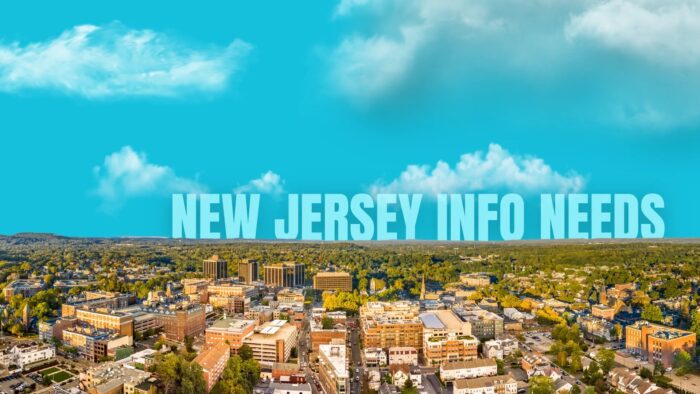
Blairstown, Paterson, and Trenton are three very different communities in New Jersey, but when Sarah Stonbely, the research director of the Center for Cooperative Media at Montclair State University, surveyed residents about what they need from their local news outlets, she found they had a number of needs in common.
Paterson, one of New Jersey’s largest cities, is majority-Hispanic and also has a sizable proportion of Arab residents. (Paterson residents were surveyed in Spanish, Arabic, and Bengali as well as English.) It has a below-average median income for the state. Trenton, another large city and the New Jersey state capital, is roughly half Black. And Blairstown is a small, rural town that is more than 90% white.
But all three communities had lost most of their existing local news outlets over the years. All wanted more service journalism, in the form of information about municipal government meetings or contact information for local leaders. And all relied heavily on local Facebook groups for news, even though they also understood Facebook’s flaws.
Stonbely compiled her findings in this new report and shared them with hyperlocal news outlets that had recently launched in the communities: The Paterson Information Hub in Paterson, which is a news product of the nonprofit hub Paterson Alliance; the Trenton Journal in Trenton; and the Ridge View Echo in Blairstown. All three outlets are grantees of the New Jersey Civic Information Consortium, which we’ve covered here.I asked Stonbely a few questions about her research.
I thought that was really exciting. If you’re a publisher and you’re just in the weeds, starting a news organization and trying to do investigations or something, it just might not occur to you that [a municipal calendar] is something that would provide value.
The research was supported by funding from the Google News Initiative, and one condition of the grant was that “after the initial information needs assessments were complete, each outlet was to make improvements to their product based on the findings.” Here are the recommendations that Stonbely gave to The Paterson Hub, Trenton Journal, and Ridge View Echo.
- The top two topics of interest for the community members we heard from were safety/crime and food (in)security, which do not readily lend themselves to events, which suggests that a different platform — perhaps an email newsletter or dedicated website — may be of more interest to those community members who want to hear about these topics.
- However, nearly half of people showed interest in events about exercise/recreation, housing affordability/homelessness, early childhood education, mental health, and music. This list of topics lends itself well to a shared calendar. In addition, the greatest share of survey respondents (more than half) said that they attend events that ‘help me solve everyday problems in my life’ and that ‘connect me to friends and neighbors.’ You can emphasize these types of events in your calendar — focusing on utility and connection.
- There is a long list of trusted organizations in Paterson; consider collaborating with these organizations on a calendar or news outlet (beyond just asking them to contribute content), so that trust is built in from the beginning. You may also tap people/offices on the list of most trusted sources.
- Engage to a greater extent on Facebook, and be present on Facebook groups that are relevant in Paterson; this is where most of the traffic is and where you’ll have the greatest visibility.
- Paterson is extremely diverse; take advantage of this diversity by offering your content in as many relevant languages as possible, but especially Spanish and Arabic.
- Create a dedicated section for posting the dates and times of upcoming municipal meetings, similar to your events page; publicize it via your newsletter and social media.
- Go one step further and cover municipal meetings regularly, even if it’s simply by providing a transcript.
- Consider adding a section on your website that lists all city and state departments, the services they provide, and their contact information.
- Consider offering different sub-pages for each ward, that can be tailored to the differing concerns and interest in each.
- Engage to a greater extent on Facebook, and be present on Facebook groups that are relevant in Trenton, especially Trenton Orbit and Peterson’s Breaking News of Trenton.
- Create a dedicated section for posting the dates and times of upcoming municipal meetings, similar to your events page; publicize it via your newsletter and social media.
- Go one step further and cover municipal meetings regularly, even if it’s simply by providing a transcript.
- Get more involved on Facebook, both on the feed and in groups.
- Continue to cover feel-good lifestyle issues in addition to hard issues.
- Consider adding a section that allows people to recommend service providers; maybe service providers could recommend themselves for a fee (similar to advertising but in a dedicated section)? Could list it as a Directory similar to the others that you have under Resources.